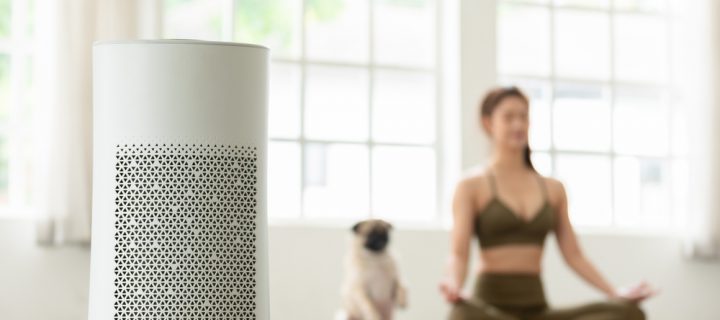They do to some extent, but are a secondary solution.
Air purifiers have long been used to “clean the air”. Whether or not they actually do something good is up for some debate, however. According to the Mayo Clinic, there isn’t any air purifier in existence that can entirely eliminate one common contagion-cigarette smoke- from your environment. Even well-regarded high-efficiency particulate air (HEPA) filters don’t remove all gaseous pollutants, meaning you are still exposing yourself to contaminants when using an air filter around smokers. Many industries do use these filters, however, in the name of a better customer experience. Airlines often advertise their clean air online, saying that the HEPA filters ‘purify cabin air’ while combining filtered air with recirculated air, every few minutes.
HEPA filters are not only used in airplanes, but also in medical buildings to help wipe the air clean of viruses and bacteria. But can they actually remove the coronavirus from your breathing space?
Related: Is it Real? How to Spot a Fake Coronavirus Vaccine
According to the experts, yes, at least somewhat. It depends on who you talk to. In Canada’s province of Quebec, public health authorities advised against installing air purifiers in classrooms earlier during the pandemic. It was decided that they could actually help spread the virus around. (Quebec is home to 24% of the country’s people, but almost 50% of its deaths from coronavirus and has often chosen to keep schools open).
The idea is that some air purifiers push air downwards, creating the potential for droplets infected with the coronavirus in that air to fall on surfaces. They could also potentially push droplets back into the air environment.
According to Jeffrey Siegel, a professor of civil and mineral engineering at the University of Toronto in Ontario, Canada, this problem has a simple solution, however. Elevating the filter by placing it on a stool and away from walls (ie, the center of the room), can largely eliminate the dangers.
A Solution?
Air filters shouldn’t be considered a solution to the problem of spending time indoors with others during the pandemic, however. Experts like Siegel say if an infected person is spending time in close proximity with those who aren’t infected, even the best filtration system likely won’t stop the virus from spreading. Having HEPA filters in your indoor environment is a secondary measure, and should be considered as such. The most important things to do are practicing social distancing, washing your hands, and wearing a mask, experts say. It’s also best to stay out of indoor environments shared with people other than those in your immediate household during the pandemic.
High quality air filters are made of the same materials used in face masks and other kinds of personal protective equipment (PPE). And everybody wants them. Reports indicate the demand for HEPA filters from consumers and businesses has soared during the pandemic. Because of this, they are now said to be in short supply in some areas.
If you feel you need a HEPA filter and can get your hands on one, it could reduce your risk of catching COVID-19 from others indoors. Just make sure it is placed properly, and that you aren’t increasing the risk of people becoming infected with the virus by introducing the filter to the environment. Ventilation standards for buildings need to be met in accordance with local regulations, and assessed by a professional.
photo credits: Yuttana Jaowattana/Shutterstock.com












